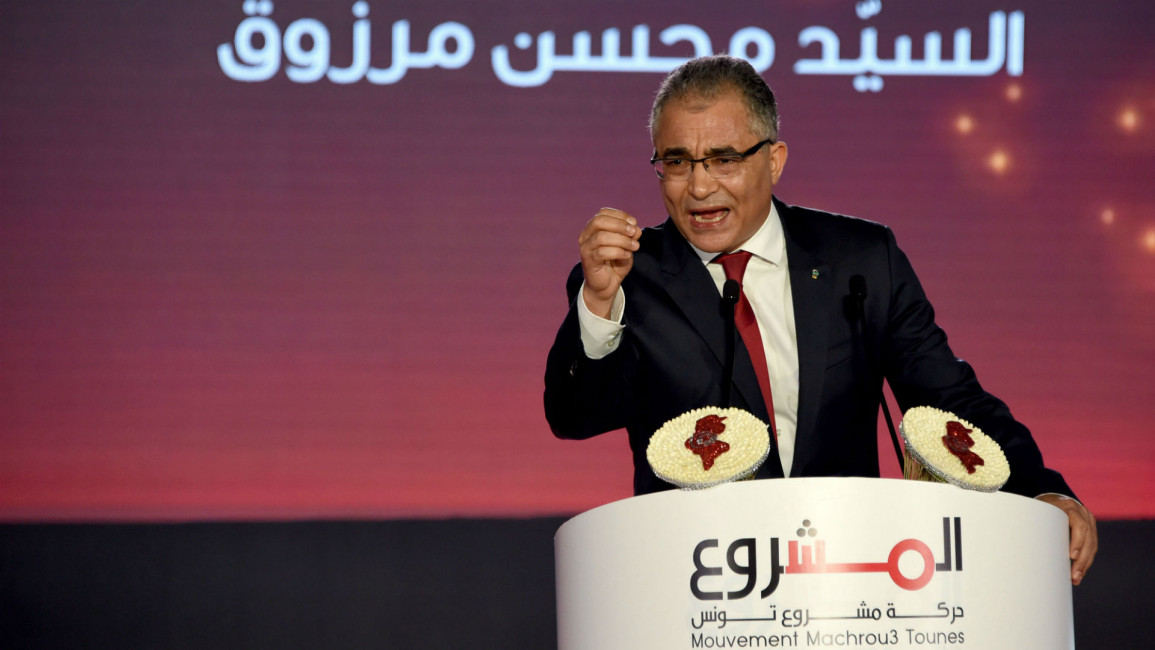Tunisian anti-political Islam party opens first congress
Tunisian dissident Mohsen Marzouk has opened a congress for his party's first political conference, which rejects mixing religion and politics and mimics many of the policies of pre-revolutionary Tunisia.
Marzouk launched the Tounes Movement Project in March, and based its policies around those of Habib Bourguiba, Tunisia’s first leader after independence from France.
More than 3,000 people attended Saturday's opening of the constitutional congress in Tunis, which will continue for the next two days in the northeastern town of Hammamet.
"We are in total disagreement with all those who mix politics and religion," Marzouk said, referring to the Islamist Ennahda party, which controls the most seats in parliament.
"The time has come to reform the country. We are the party of reform and we have decided to be a force for constructive plans," party founding member Mondher Belhaj Ali told AFP.
Marzouk stepped down as secretary general of Nidaa Tounes after a split with the president's son, Hafedh Caid Essebsi, over who should take over as leader.
Tensions came to a head in October after accusations that Essebsi supporters wielding sticks had blocked rival party members from a meeting of its executive committee.
The crisis saw 22 MPs leave Nidaa Tounes in January to form their own al-Horra (The Free) bloc, making Ennahda the largest group in parliament.
Nidaa Tounes now has only 64 MPs versus Ennahda's 69 seats.
Nidaa Tounes was set up in 2012 and modelled itself as a secular party across the left-right political spectrum. Controversially, it also included officials from the former regime of toppled ruler Zine El Abidine Ben Ali.
Tunisia led the Arab Spring with the toppling of Ben Ali in 2010, leading to protests elsewhere in the Arab world including Egypt.
Since then, Tunisia has been riddled with economic problems but its democratic project has remained relatively stable, while counter-revolutionary movements take the lead in the rest of the Arab world.



